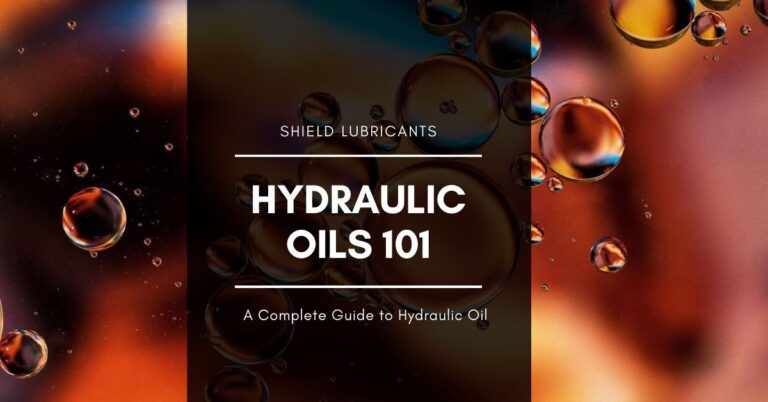Can You Use Motor Oil For Hydraulic Fluid
In the realm of mechanical systems, the choice of appropriate fluids is crucial for ensuring optimal performance and longevity. Hydraulic systems, in particular, rely on specialized hydraulic fluids to transmit power and operate smoothly. However, there may arise situations where an individual contemplates using motor oil as a substitute for hydraulic fluid due to various reasons such as convenience or cost-effectiveness. This article aims to examine whether motor oil can be used as a viable alternative to hydraulic fluid by exploring their differences in composition and characteristics. By delving into the potential risks and drawbacks associated with using motor oil in hydraulic systems, this article seeks to provide readers with valuable insights into making informed decisions regarding their respective hydraulic systems. Additionally, alternative solutions and common mistakes will also be discussed, emphasizing the significance of regular maintenance and fluid checks for optimum system performance.
Understanding Hydraulic Fluids and Their Functions
Hydraulic fluids are essential components in hydraulic systems, serving as a medium for transmitting power and lubricating moving parts, thereby ensuring efficient operation and preventing wear and damage. These fluids possess specific properties that make them suitable for their intended functions. One of the key properties of hydraulic fluid is its viscosity, which determines its resistance to flow under different operating conditions. Ideally, hydraulic fluids should have a low viscosity to facilitate smooth movement of components while providing sufficient lubrication.
Proper lubrication is crucial in hydraulic systems as it helps reduce friction between moving parts, minimizing wear and extending the lifespan of the system. Additionally, it aids in dissipating heat generated during operation, preventing overheating that could lead to component failure or reduced efficiency. Hydraulic fluids also play a vital role in sealing gaps between various components, preventing leaks and maintaining system integrity.
It is important to note that there are significant differences between motor oil and hydraulic fluid. While both serve as lubricants, motor oil is specifically formulated for internal combustion engines and contains additives that enhance engine performance. On the other hand, hydraulic fluids are designed with distinct properties suited for their unique applications within hydraulic systems.
In conclusion, understanding the properties and importance of proper lubrication in hydraulic fluid is essential for effective system operation. However, it is equally important to recognize the differences between motor oil and hydraulic fluid to ensure optimal performance and prevent potential damage.
Differences Between Motor Oil and Hydraulic Fluid
One key distinction between motor oil and hydraulic fluid lies in their respective applications and functions. While both are lubricants, they serve different purposes due to their differing properties. Understanding the differences between motor oil and hydraulic fluid is crucial for selecting the appropriate fluid for specific applications.
- Viscosity: Motor oil has a higher viscosity compared to hydraulic fluid, which allows it to withstand high temperatures and provide better lubrication in internal combustion engines. On the other hand, hydraulic fluid has lower viscosity to ensure smooth flow through hydraulic systems.
- Additives: Motor oil contains additives such as detergents, dispersants, and anti-wear agents that help clean engine components, prevent sludge formation, and reduce friction. Hydraulic fluid may contain additives like rust inhibitors or foam suppressants depending on the system requirements.
- Shear Stability: Motor oil undergoes more shear stress due to moving parts in an engine, requiring it to have better shear stability. Hydraulic fluids experience less shear stress and therefore do not require the same level of shear stability.
Understanding these differences is important as using motor oil instead of hydraulic fluid can lead to potential risks and drawbacks.
Potential Risks and Drawbacks of Using Motor Oil
There are several potential risks and drawbacks associated with utilizing motor oil in applications where it is not intended for. Motor oil is designed specifically for the lubrication of internal combustion engines, and using it as a substitute for hydraulic fluid can lead to various problems. One significant risk is that motor oil may not provide adequate lubrication and protection for hydraulic components, which could result in increased wear and premature failure of these parts. Moreover, motor oil may have different viscosity characteristics compared to hydraulic fluid, affecting the overall performance of the system.
Another disadvantage of using motor oil as a hydraulic fluid substitute is its thermal stability. Hydraulic systems often operate under high temperatures, which can cause regular motor oil to break down more quickly than specialized hydraulic fluids. This breakdown can result in inadequate lubrication and decreased system efficiency.
Additionally, motor oils commonly contain additives that are specific to engine operation but unnecessary or even detrimental in hydraulic systems. These additives may cause issues such as foaming or corrosion within the hydraulic system.
Considering these risks and disadvantages, it is important to explore alternative solutions for hydraulic systems that are specifically formulated to meet their unique requirements. These alternatives will ensure proper lubrication, temperature stability, and compatibility with other system components without compromising performance or longevity.
Alternative Solutions for Hydraulic Systems
Using the correct hydraulic fluid is crucial for maintaining the optimal performance and longevity of hydraulic systems. Different types of hydraulic fluids are designed to meet specific requirements and provide suitable lubrication, heat transfer, and corrosion protection. Consulting with a professional in the field can ensure that the appropriate hydraulic fluid is selected based on factors such as system design, operating conditions, and manufacturer recommendations.
Using the Correct Hydraulic Fluid
To ensure optimal performance and longevity of hydraulic systems, it is essential to select the appropriate hydraulic fluid rather than using motor oil, as they possess different viscosity and additives that are specifically designed for their intended applications. Using the correct hydraulic fluid offers several benefits:
- Improved lubrication: Hydraulic fluids have additives that provide superior lubrication, reducing friction and wear on system components.
- Enhanced corrosion protection: Hydraulic fluids contain corrosion inhibitors that protect metal parts from rust and degradation.
- Efficient heat transfer: The right hydraulic fluid has excellent thermal properties, allowing it to dissipate heat effectively and prevent overheating.
- System compatibility: Hydraulic fluids are formulated to be compatible with various seal materials, preventing leaks and maintaining system integrity.
Consulting with a professional in hydraulics can provide further guidance in selecting the appropriate fluid for specific applications.
Consulting with a Professional
Consulting with an expert in the field of hydraulics can offer valuable insights when it comes to selecting the appropriate hydraulic fluid for specific applications. Professionals who specialize in hydraulics have a deep understanding of the various types of hydraulic fluids available on the market, as well as their unique properties and performance characteristics. By seeking professional advice, individuals can ensure that they are using the right hydraulic fluid that meets the requirements of their equipment and operating conditions. A knowledgeable consultant can provide guidance on factors such as viscosity, temperature range, and compatibility with system components. Moreover, they can help identify any potential risks or issues that may arise from using an incorrect or incompatible hydraulic fluid. This expertise ultimately contributes to optimal performance and longevity of hydraulic systems.
Transition: Understanding the importance of regular maintenance and fluid checks is another crucial aspect in maintaining hydraulic systems without causing unnecessary damage.
Importance of Regular Maintenance and Fluid Checks
Regular maintenance and fluid checks are of utmost importance, as neglecting them could potentially result in catastrophic system failure, leading to costly repairs and disruptions in operation. To ensure the smooth functioning of hydraulic systems, scheduled maintenance should be prioritized. Regular fluid checks help identify any issues or abnormalities that may arise within the system. Here are some benefits of incorporating regular maintenance and fluid checks:
- Prevention of premature component wear: Regular inspections allow for early detection of contaminants, such as dirt or water, which can cause excessive wear on hydraulic components.
- Increased system efficiency: Monitoring fluid levels and quality helps maintain optimal operating conditions, ensuring peak performance and reducing energy consumption.
- Extended equipment lifespan: By promptly addressing any problems identified during routine checks, potential damages can be mitigated, prolonging the lifespan of the equipment.
- Enhanced safety: System failures due to neglected maintenance can pose significant safety hazards for operators and surrounding personnel. Regular checks minimize the risk of accidents.
- Cost-effective approach: Early identification and rectification of issues through regular maintenance can prevent major breakdowns, saving both time and money.
By implementing a comprehensive maintenance program that includes regular fluid checks, hydraulic systems can operate at their best while avoiding unnecessary downtime. Taking these precautions will set the stage for understanding common mistakes to avoid when using hydraulic fluid.
Common Mistakes to Avoid When Using Hydraulic Fluid
A key consideration when working with hydraulic systems is avoiding common mistakes that can lead to suboptimal performance and potential damage. One common misconception is the belief that motor oil can be used as a substitute for hydraulic fluid. This is a mistake that should be avoided as motor oil and hydraulic fluid have different properties and functions.
Motor oil is designed to lubricate internal combustion engines, while hydraulic fluid is specifically formulated to meet the requirements of hydraulic systems. Hydraulic fluids provide lubrication, transmit power, dissipate heat, and protect against corrosion in the system. They are designed to withstand high pressures and temperatures, while also maintaining consistent viscosity.
Using motor oil instead of hydraulic fluid can lead to several issues. Motor oil may not provide adequate lubrication or protection against corrosion in a hydraulic system, resulting in increased wear and potential damage to components. Additionally, motor oil may not have the same ability to dissipate heat effectively, leading to overheating issues.
To troubleshoot any problems with a hydraulic system, it is important to use the correct type of hydraulic fluid recommended by the manufacturer. Regularly checking fluid levels, monitoring for leaks or contamination, and following proper maintenance procedures are essential steps in ensuring optimal performance.
In conclusion, making an informed decision for your hydraulic system involves understanding the importance of using the correct type of hydraulic fluid and avoiding common misconceptions such as substituting motor oil. By following troubleshooting tips and conducting regular maintenance checks on your system’s fluid levels and condition, you can avoid potential damage and ensure optimal performance for your hydraulic system without compromising its functionality or longevity.
Conclusion: Making an Informed Decision for Your Hydraulic System
To make an informed decision for your hydraulic system, it is essential to understand the importance of selecting the appropriate type of fluid and avoiding common misconceptions that may compromise its performance and durability. Choosing the right fluid is crucial as it directly affects the overall operation and longevity of the system.
There are several factors to consider when selecting hydraulic fluid. One key consideration is the viscosity grade, which determines how well the fluid will flow at different temperatures. It is important to match the viscosity grade with the temperature range in which the system will operate to ensure optimal performance.
Another factor to consider is whether a mineral-based or synthetic-based fluid should be used. Mineral-based fluids, such as motor oil, are commonly used due to their cost-effectiveness. However, they have limitations in terms of stability and resistance to high temperatures. Synthetic-based fluids, on the other hand, offer improved thermal stability and better lubrication properties but come at a higher cost.
Furthermore, it is crucial to avoid using motor oil as a substitute for hydraulic fluid. Although both substances serve as lubricants, they have different compositions and properties that make them incompatible substitutes. Motor oil lacks adequate additives required for proper hydraulic system operation and can lead to reduced performance and premature wear of components.
In conclusion, making an informed decision about choosing the right fluid for your hydraulic system requires careful consideration of factors such as viscosity grade and base type. It is imperative to consult manufacturers’ recommendations and seek expert advice when necessary to ensure optimal performance and longevity of your hydraulic system.
Frequently Asked Questions
Can hydraulic fluid be used as motor oil in a vehicle?
Hydraulic fluid cannot be used as a substitute for motor oil in a vehicle. While both fluids serve lubrication purposes, hydraulic fluid alternatives lack the required viscosity and additives necessary to protect and optimize engine performance.
What are the advantages of using hydraulic fluid instead of motor oil for hydraulic systems?
The advantages of using hydraulic fluid over motor oil in hydraulic systems are numerous. Proper fluid selection is crucial as it ensures optimal performance, reduces wear and tear, improves efficiency, and extends the lifespan of the system components.
Are there any compatibility issues between hydraulic fluid and motor oil?
Potential compatibility issues may arise when using motor oil as a substitute for hydraulic fluid. Hydraulic fluids possess specific properties necessary for optimal performance, such as viscosity and additives, which motor oils may lack. Suitable alternatives should be considered to ensure proper functioning of hydraulic systems.
Is it possible to mix hydraulic fluid and motor oil together?
It is not recommended to mix hydraulic fluid and motor oil together. Hydraulic fluid has different properties than motor oil, and using one in place of the other can lead to performance issues and potential damage to the vehicle’s systems. Additionally, hydraulic fluid should not be used as brake fluid or motor oil as transmission fluid in a car due to their distinct characteristics and specifications.
Can using motor oil instead of hydraulic fluid cause damage to the hydraulic system?
Using motor oil instead of hydraulic fluid can lead to potential consequences and long-term effects on the hydraulic system. This substitution may result in reduced performance, increased wear and tear, and ultimately damage to the hydraulic components.
Conclusion
In conclusion, it is not advisable to use motor oil as a substitute for hydraulic fluid in hydraulic systems. Although motor oil may share some similarities with hydraulic fluid, such as viscosity and lubricating properties, they serve different functions and have distinct compositions. Using motor oil can lead to potential risks and drawbacks, including reduced system performance and increased wear on components. It is essential to choose the appropriate hydraulic fluid specifically designed for hydraulic systems to ensure optimal performance and longevity. Remember, when it comes to your hydraulic system, using the right fluid is like choosing the perfect fuel for a high-performance engine – crucial for smooth operation and long-lasting efficiency.







